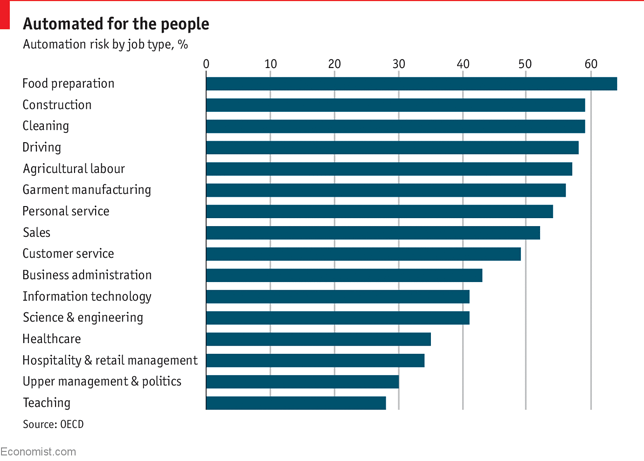To kick off we will be discussing the theme of ‘The Future of Work’ which is a topic at the heart of the socioeconomic and political concerns surrounding AI and automation.
An enormous amount of literature has emerged over the last few years in the context of the “Future of Work’. Academics, think tanks and policy makers have fuelled rich discussions about how “The Future of Work” might look like and how we can shape it. Indeed, labour markets in both developing and developed countries are likely to undergo major transformations in the next years and decades.
However, despite a growing body of research in this area, there exists no universally accepted view of what exactly the “Future of Work” looks like and so, there is a vast variety of questions to cover and indeed uncover.
Historically the global nature of work has changed due to the necessity for society to use technology to solve basic sustenance problems. The size a society could sustain itself appears to be directly determined by the effective use of technology. In the information age, the acceleration of technological advance means that society is changing and growing also at an accelerating rate and therefore the nature of work in particular is changing faster than ever before.
Increasingly, automation permeates to a broader set of tasks. The current state of work globally is set to change in profound ways due to a number of advancing technologies such as robotics and artificial intelligence.
The following list details typical job types that are at risk, and their varying risks of being automated.
Emerging technologies such as fusion power, quantum cryptography, high resolution 3d printing, VR and AR, 5G connectivity, IOT and Mesh computing and of course strong AI (AGI) and blockchain, are already here or will be available to us within the next ten years.
These exciting core technologies will not only utterly change the landscape of work, but our society as a whole, and it is precisely these changes that inspired us to start the question of the day campaign and to focus it on the Future of Work for the next two weeks.


